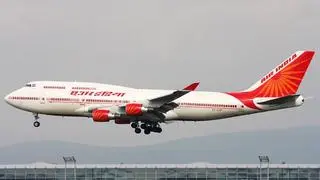Writing for Harvard Business Review, Donald Sull who teaches strategy at MIT Sloan School of Management, said, one of the reasons good companies go bad is because they end up with a condition called active inertia. Active inertia, according to him , is an organisation’s tendency to follow established behavioural patterns — even in response to dramatic environmental shifts. Stuck in the modes of thinking that brought success in the past, market leaders simply accelerate all their tried-and-true activities. In trying to dig themselves out of a hole, they deepen it.
Recent incidents involving IndiGo pilots and the rest of the crew taking unauthorised leave on July 2, increasing instances of baggage mishandling , and reported ‘insensitive’ behaviour of the crew towards some passengers indicate that India’s largest airline is showing signs of fatigue.
Critics say that an almost impregnable market share that the airline has built for itself over the years has, in all likelihood, gotten out of hand. Shakti Lumba, former executive director of Alliance Air and former vice-president of flight operations at IndiGo, believes the airline is entirely process-driven, sans human element . “IndiGo, due to its ambitious aircraft induction program and wanting to serve as many airports as possible, is largely process-based: Processes reduce new hire induction and training time and for staff hired for its size and scale of operation, but, they do not cater for any human element. Processes also turn employees into ‘bots’. They see only black and white, ignoring the grey. Hence, the airline has started having issues with customers,” he said.
Take for instance, the recently reported absence from work by airline pilots. This led to over 900 out of 1,600 flights getting delayed as the airline scrambled to assemble a crew.This unprecedented move led to the management announcing an increase in salaries of pilots and the crew by 8 per cent, on top of a similar hike it had rolled out in April. The company also restored their overtime allowance for them.
Aviation Analyst, Pankaj Narayan Pandit, who was earlier part of the consulting team with Sabre Inc, a global tech company for the travel industry, said most big organisations start floundering if HR practices are not aligned with employee needs. “IndiGo’s success story is exceptional. But when a company grows too big, HR challenges crop up, and that needs to be fixed immediately,” Pandit, who runs an aviation consultancy firm, Plusmetrix Business Solutions LLP, said.
In response to a questionnaire sent by Business Line, an IndiGo spokesperson pointed out the airline’s success is a result of its focus on three pillars – offering low fares, being on time and delivering a courteous and hassle-free experience. “These qualities have endeared us to customers, who have made us India’s most preferred airline. We aim to improve our services , and we have been working on all aspects of our business.” The spokesperson said the airline strongly believes in empowering employees. “We have been focussed on our people — equipping them to deal with the return of passengers under full-fledged operations; equipment — we have the youngest, most efficient fleet of aircraft in the country; and systems — we have been investing heavily on digital and improving our processes to ensure a smooth passenger experience.”
So, where does the problem lie? Is it about organisational challenges while trying to manage a vast market share which the airline says, with the measures outlined earlier, it is pretty confident of retaining its leadership in the Indian aviation space? Lumba believes tweaking the processes whenever necessary could be one of the solutions to a problem that confronts every organisation with a near-monopoly of its market. He says, “They need a system wherein a supervisor can intervene and permit a process change. Change what doesn’t work by tweaking the process.” He also pointed out that maintaining the aircrew comes at a high cost. Hence, the HR management needs to be re-evaluated if they do not want a mass exodus. “A demoralised workforce will result in reduced productivity. No matter how averse the management is to collective bargaining and employee rights, they need to accept them. One cannot run an organisation only by emphasising employee obligation and denying them their rights under the law.”
Perhaps the answer lies in organisations being more adaptable to change, keeping an ear to the ground and never taking success for granted.








Comments
Comments have to be in English, and in full sentences. They cannot be abusive or personal. Please abide by our community guidelines for posting your comments.
We have migrated to a new commenting platform. If you are already a registered user of TheHindu Businessline and logged in, you may continue to engage with our articles. If you do not have an account please register and login to post comments. Users can access their older comments by logging into their accounts on Vuukle.